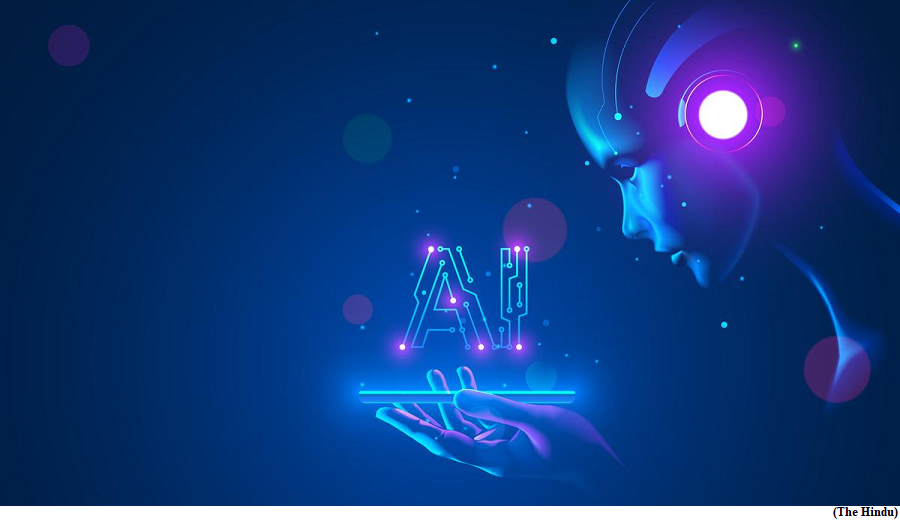The explosion of digital uncertainty (GS Paper 3, Science and Technology)

Why in news?
- Recent advances in Generative Artificial Intelligence (AI) have captured the imagination of the public, businesses and governments alike.
- The Government of India has also, very recently, released a comprehensive report on the opportunities afforded by this current wave of AI.
- Leaders of the IT industry in India are almost certain that this wave of AI will lead to fundamental changes in the skills landscape, and implicitly, in terms of underlying threats and dangers.
Complexity:
- The digital infrastructure is built on layers upon layers of omniscient machine intelligence, human coded software abstractions, and undependable hardware components.
- Each of the layers interconnect through complex and deeply embedded protocols. The narrow aperture of understanding of such aspects means that the vast majority of people are ignorant of the implications.
Cognitive warfare:
- While cyber has attracted a measure of attention, there is little understanding of the nature of today’s cognitive warfare. Cognitive warfare truly ranks alongside other elements of modern warfare such as the domains of maritime, air and space.
- Cognitive warfare puts a premium on sophisticated techniques that are aimed at destabilising institutions, especially governments, and manipulation, among other aspects, of the news media by powerful non-state actors.
- It entails the art of using technological tools to alter the cognition of human targets, who are often unaware of such attempts.
- The end result could be a loss of trust apart from breaches of confidentiality and loss of governance capabilities. Even more dangerous is that it could alter a population’s behaviour using sophisticated psychological techniques of manipulation.
- Hence, digital uncertainty is morphing into radical uncertainty and rather rapidly. Today, government and government agencies are spending significant resources to undo the impact of misinformation and disinformation, but this may not be enough.
The emergence of AGI:
- If AI is the grave threat that the world is currently contemplating, it is only the tip of the iceberg. As growing numbers of people become dependent on digital networks, AI is able to influence many critical aspects of their thinking and functioning.
- Sooner rather than later, world will witness the emergence of Artificial General Intelligence (AGI), Artificial Intelligence that is equal and or superior to human intelligence, which will penetrate whole new sectors and replace human judgement, intuition and creativity.
Implications:
- The impending dawn of AGI is far more disruptive and dangerous than anything else encountered thus far. There is real fear that it could alter the very fabric of nation-states, and tear apart real and imagined communities across the globe.
- Social and economic inequalities will rise exponentially. Social anarchy will rule the streets as we see happening in some of the cities closest to the epicentre of technological innovation.
- It has an inherent capacity to flood a country with fake content masquerading as truth, and for imitating known voices with false ones that sound eerily familiar. This could lead to a breakdown of the concept of trust and could lead to overturning the trust pyramid with catastrophic consequences.
Game changer in the 21st century:
- AGI will enable highly autonomous systems that outperform humans in many areas, including economically (valuable) work, education, social welfare and the like.
- AGI systems will have the potential to be able to make decisions that are unpredictable and uncontrollable which could have unintended consequences, often with harmful outcomes.
- It is difficult to comprehend at this point its many manifestations, but job displacements and economic displacements would be initial symptoms of what could become a tsunami of almost all human-related activity.
- Digital data could in turn become converted into digital intelligence, enlarging the scope for disruption and the reining in of entire sectors. It would enhance inequalities and exacerbate social disparities, and worsen economic disparities.
- Hence, AGI could prove to be as radical a game-changer in the world of the 21st century as the Industrial Revolution was in the 18th century.
Digital colonization:
- It is almost certain to lead to material shifts in the geo-political balance of power, and in a way never comprehended previously.
- The spectre of digital colonisation looms large with AGI-based power centres being based in a few specific locations.
- Consequently, AGI-driven disruption could precipitate the dawn of the age of digital colonialism. This would lead to a new form of exploitation, viz., data exploitation.
- In its most egregious form, it would entail export of raw data and import of value-added products that use this data. AGI-based concentration of power would have eerie similarities to the old East India Company syndrome.
The Hamas-Israel conflict
- AI can be exploited and manipulated skilfully in certain situations, as was possibly the case in the current Hamas-Israeli conflict, sometimes referred to as the Yom Kippur War 2023.
- Israel’s massive intelligence failure is attributed by some experts to an overindulgence of AI by it, which was skilfully exploited by Hamas.
- AI depends essentially on data and algorithms, and Hamas appears to have used subterfuges to conceal its real intentions by distorting the flow of information flowing into Israeli AI systems.
- Hamas thus able to blindside Israeli intelligence and the Israeli High Command. The lesson to be learnt is that an over-dependence on AI and a belief in its invincibility could prove to be as catastrophic as ‘locking the gates after the horse has bolted’.


